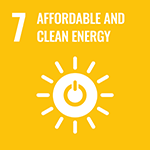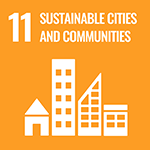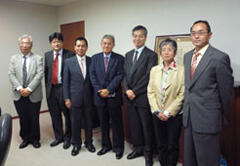Development of Low Carbon Society Scenarios for Asian Regions
Principal Investigator
ODA Recipient Country
Malaysia
Research Institutions in Japan
Kyoto University / National Institute for Environmental Studies (NIES) / Okayama University
Research Institutions in Counterpart Country
Universiti Teknologi Malaysia (UTM) / Iskandar Regional Development Authority (IRDA), etc.
Adoption fiscal year
FY 2010
Research Period
5 Years
Overview of the Research Project
Designing the low carbon society of 2025 in Asia
To reduce greenhouse gases worldwide, effective measures in emerging nations are indispensable. In a special economic zone in Malaysia centered on Johor Bahru, also known as Iskandar Malaysia, information on the economy, society, and technology for creating a low carbon society will be gathered and analyzed for five categories (power generation, industry, transportation, commercial, and residential), in order to develop integrated assessment models and scenarios for a low carbon society in 2025. Simulations performed with the model will then be used as the basis for a proposal of the policy system required to make the low carbon society a reality. The project will also provide assistance in devising solutions to the problems of air pollution, waste management, and poverty and other social problems in connection with the establishment of a low carbon society.
From Iskandar, which holds the key to a low carbon society, to the entire Asian region
This project will prepare a practical policy roadmap and, in the process of implementing this policy roadmap, will work to improve the practicality and effectiveness of methods. Dissemination of the achievements of this research in Iskandar Malaysia, which is the symbol of the growing Asia, will help to achieve a low carbon society in Asia as a whole.
Photo gallery
Research Project Web site
Press Release
Links
Projects
Contact Us
Japan Science and Technology Agency (JST)
Department of International Affairs
SATREPS Group
TEL : +81-3-5214-8085
Related articles by Category
- Carbon Neutrality
Environment / Energy
(Carbon Neutrality)
 Kingdom of Cambodia
Kingdom of Cambodia
Using water management to reduce methane emissions from rice paddies!
Development and Social Implementation of Greenhouse Gas Emission Reduction Technologies in Paddy Fields of West Tonle Sap Lake by Establishing a Large Paddy Area Water Management System
- Malaysia
Environment / Energy
(Global-scale environmental issues)
 Malaysia
Malaysia
Recover water, electric power, and mineral resources from palm oil mill effluent!
Development of Palm Oil Mill Effluent (POME) Treatment System for Sustainable Energy Production and Resource Recovery based on Material Innovation
- Asia
Environment / Energy
(Global-scale environmental issues)
 Kingdom of Thailand
Kingdom of Thailand
“Natural rubber seeds”, the unlimited potential hiding in natural rubber plantations
Utilization Technology of Rubber Seeds for Green Products to Mitigate Global Warming and Plastic Pollution
- SDGs : Goal.13
Environment / Energy
(Carbon Neutrality)
 Republic of Indonesia
Republic of Indonesia
Healthy people, healthy world: Transforming CO2 with microalgae
Integrated Sustainable Energy and Food Production from Microalgae-based Carbon Capture and Utilization























